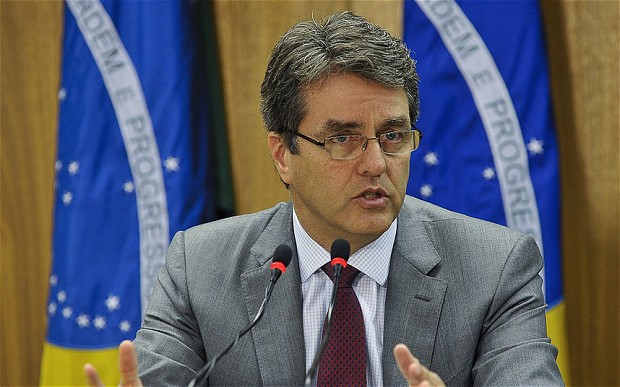Lessons We Can Learn From Bridge-Building Brazil

Source: www.telegraph.co.uk
The following article appeared in The Canberra Times on 28 May, 2013.
The selection of Brazilian diplomat Roberto Azevedo as director-general of the World Trade Organisation has once again put Brazilian diplomacy on the front pages of the world’s newspapers.
While Azevedo is superbly qualified for the post, he was but one of a number of eminently capable individuals put forward for the job. In the end, a deciding factor was the international perception of Brazil as a constructive, inclusive player. This reputation as a selfless bridge-builder between rich and poor nations has some merit, but it is built on the same self-interested foundations as the foreign policy of other major global actors.
Within the WTO context in the past decade, Brazil has emerged as a critical bridge between the developed and developing worlds, keeping poorer economies engaged when they were more disposed to tear down the structure.
The appointment of fellow Brazilian José Graziano da Silva as director general of the United Nations’ Food and Agricultural Organisation (FAO) in 2011 has boosted the feeling of empowerment in developing countries. In 2010-11, Brazil used its seat on the U.N. Security Council to carve a niche as a social conscience for the world, pushing a ‘responsibility while protecting’ doctrine to lower civilian deaths and injuries in armed humanitarian interventions.
These initiatives play an important role in keeping a wide range of countries engaged with critical global governance institutions, but they also point to the self-serving foundations of Brazil’s foreign policy.
Quiet mutterings in Geneva’s corridors in the past five years come from a sense among developing countries that Brazil is selling its interests down the river to advance big Brazilian agribusiness’s needs for market access.
Graziano’s leadership of the FAO has heavy undertones of soft power. Brasilia has followed up this success with frequent ”missions” by government social policy ministries to spread a specific approach to socioeconomic development, and with it a quiet reorientation of developing countries’ trade and investment towards Brazil.
In the Security Council, the ambitions of the ‘responsibility while protecting’ doctrine are hard to contest until we pause to realise it would make countries undertaking humanitarian interventions legally liable for any resulting civilian damage, injury and death, which would further stunt already reluctant actions through the UN.
For Brazil, slowing the pace of interventions is entirely consistent with a standing foreign policy of privileging national sovereignty to prevent discussions of initiatives like a global environmental protectorate in Amazonia.
The point is not that Brazil is a maniacal country bent on world domination, or indifferent to human suffering and environmental damage: quite the opposite. Brazil’s international pro-poor social and economic development agenda is very real and central to its international identity. Rather, the point is that like any other country of international standing Brazil has a sophisticated and intricate foreign policy designed to vouchsafe its national interest. Capturing the headships of organisations such as the WTO and the FAO is part and parcel of directing the global agenda in a manner conducive to Brazilian interests.
To pursue its international agenda, Brazil relies on an impressive ability to develop and communicate new ideas through a process of patient discussion and civil debate, often creating a widespread consensus around something remarkably close to its own view. Azevedo is a master of this craft, hence his support in Geneva.
This approach to international issues differs markedly from that found in traditional powers in the North, who have a reputation for using a blunt stick and often emaciated carrot to win consent.
It is also an approach that will become increasingly important in a multipolar world in which formerly compliant countries in Africa and Latin America are finding a voice and loudly questioning solutions imposed by the United States and the European Union. For countries such as Australia, Brazil’s rise is therefore more of an opportunity than a threat.
Its core interests and ambitions—democracy, liberal trade, sustainable growth, environmental protection, managing China—align remarkably well with Australia’s.
This makes Brazil a potentially valuable partner for a middle power country like Australia that is seeking to protect its own interests as an uncertain contest between the United States and China evolves.
Australia is going to need a good bridge to the developing world to coordinate innovative approaches to the big global governance issues. Brazil already has a reliable bridge in place.
The toll for using it is getting to know and understand Brazil better as a prelude to deploying Australia’s well-honed middle power skills to treat Brazil like the major world actor it has become.
Dr. Sean Burges, Senior Research Fellow at the Council on Hemispheric Affairs as well as an Assistant Professor in International Relations at the Australian National University
Please accept this article as a free contribution from COHA, but if re-posting, please afford authorial and institutional attribution. Exclusive rights can be negotiated.
For additional news or analysis on Latin America, please go to: Latin News and Rights Action

